Image
Project Number
Integrated Water Resource Management and Ecosystem-based Adaptation (EbA) in the Xe Bang Hieng River Basin and Luang Prabang City
Project Status
Status 1
Project Date
Project category
Category 1
Project Stage
Stage 1
Project Area of Work
Area of Work 1
Project Donor & Co-financing
Donor 1
Project Contact Details
For media inquiries, please contact:
Phouphet Chittaphone
Database and Communication Officer, IWRM-EbA Project
Department of Water Resources, Ministry of Agriculture and Environment
Email: [email protected] Tel: +856-20-5856-2532
Phouphet Chittaphone
Database and Communication Officer, IWRM-EbA Project
Department of Water Resources, Ministry of Agriculture and Environment
Email: [email protected] Tel: +856-20-5856-2532
Share:
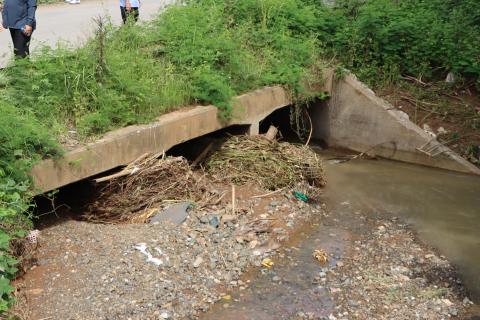
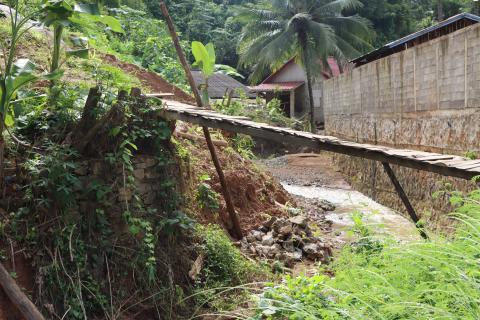
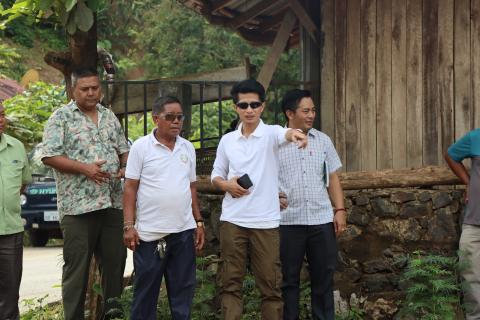
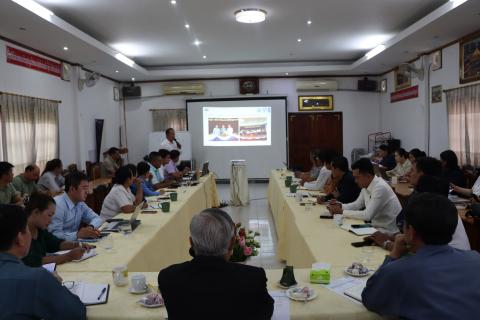
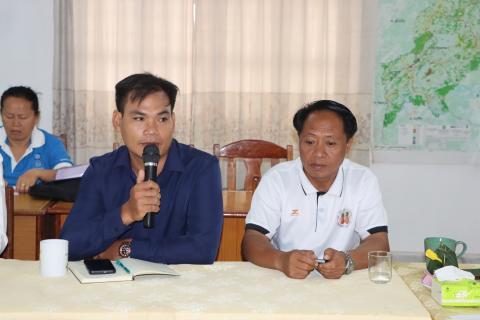
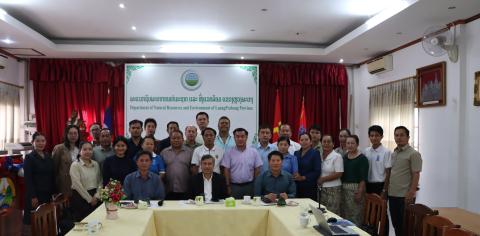
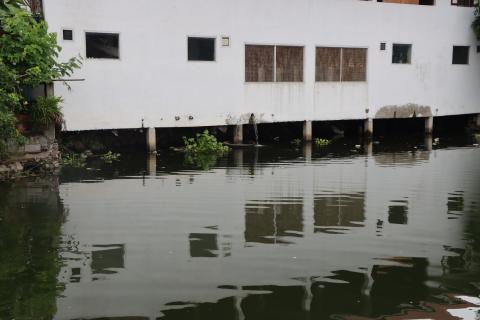
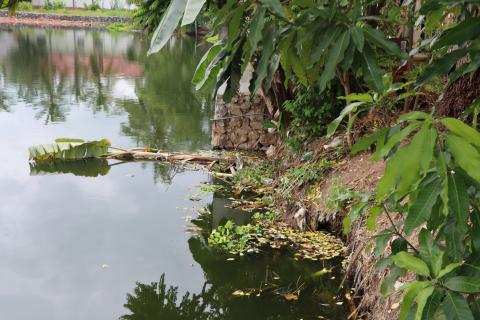
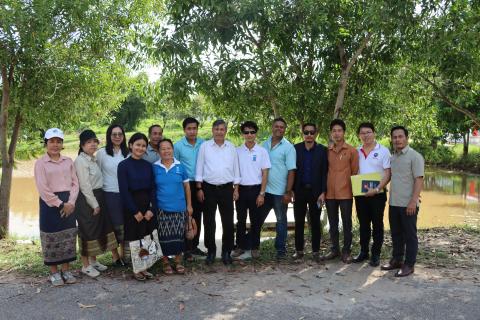
Consultation workshop and field visit on proposed new project activities in LPB
Project Location
KokNgiew Village, LuangPrabang City, LuangPrabang Province
Project Description
The Integrated Water Resources Management and Ecosystem-Based Adaptation (IWRM-EbA) Project is implemented by the Department of Water Resources (DWR) under the Ministry of Natural Resources and Environment (MONRE), with support from the United Nations Development Programme (UNDP) and funding from the Global Environment Facility (GEF). The project focuses on strengthening climate resilience and promoting sustainable ecosystem management in the Xe Bang Hieng River Basin and Luang Prabang City by integrating nature-based solutions into water resource governance and local development planning.
From 30 July to 01 August 2025, the IWRM-EbA team carried out a consultation workshop and field mission in Luang Prabang Province in close coordination with provincial and district partners. This activity supports the project’s strategic expansion in Luang Prabang by identifying and verifying new interventions in forest and wetland ecosystems, particularly in Kokngew Village. The consultation engaged stakeholders to review the proposed activities, explore suitable sites for wetland restoration, and prepare key locations ahead of the scheduled visit by the UNDP Regional Director. Field visits enabled participants to assess ecological conditions on the ground and align project priorities with community interests and technical feasibility.
This activity further reinforces local ownership and participatory planning in the design of ecosystem-based adaptation (EbA) measures. It contributes to the restoration of degraded headwaters, enhanced natural regeneration, and improved water and land use practices in climate-sensitive areas. The IWRM-EbA project continues to promote integrated, community-led approaches to adaptation that build resilience, improve livelihoods, and strengthen environmental governance in line with Lao PDR’s national development strategies and international climate commitments
From 30 July to 01 August 2025, the IWRM-EbA team carried out a consultation workshop and field mission in Luang Prabang Province in close coordination with provincial and district partners. This activity supports the project’s strategic expansion in Luang Prabang by identifying and verifying new interventions in forest and wetland ecosystems, particularly in Kokngew Village. The consultation engaged stakeholders to review the proposed activities, explore suitable sites for wetland restoration, and prepare key locations ahead of the scheduled visit by the UNDP Regional Director. Field visits enabled participants to assess ecological conditions on the ground and align project priorities with community interests and technical feasibility.
This activity further reinforces local ownership and participatory planning in the design of ecosystem-based adaptation (EbA) measures. It contributes to the restoration of degraded headwaters, enhanced natural regeneration, and improved water and land use practices in climate-sensitive areas. The IWRM-EbA project continues to promote integrated, community-led approaches to adaptation that build resilience, improve livelihoods, and strengthen environmental governance in line with Lao PDR’s national development strategies and international climate commitments
Project Outcomes & Impacts
The LuangPrabang consultation workshop and field visit under the IWRM-EbA Project delivered several strategic outputs and contributed to advancing climate resilience and sustainable ecosystem management in northern Lao PDR. The activity reinforced inclusive planning, enhanced technical coordination, and demonstrated the importance of ecosystem-based approaches in local development.
Key Outputs and Achievements:
- Validated new EbA activities for Kokngew Village, aligning with community needs and ecological priorities to support forest conservation and resilient livelihoods.
- Identified a pilot wetland restoration site in Luang Prabang City to address flood risks, restore natural water flow, and conserve local biodiversity.
- Prepared demonstration sites and technical briefings for the upcoming visit of the UNDP Regional Director, ensuring project readiness and visibility.
- Fostered cross-sectoral collaboration by engaging stakeholders from national, provincial, and village levels in co-designing adaptation actions.
- Enhanced local ownership and awareness through active participation of community leaders, local authorities, and development partners.
This activity strengthened the foundation for expanding nature-based solutions and scaling up successful models in other provinces. It also reaffirmed the project's role in contributing to Lao PDR’s climate goals, sustainable development strategies, and commitments under the Paris Agreement and the SDGs.
Key Outputs and Achievements:
- Validated new EbA activities for Kokngew Village, aligning with community needs and ecological priorities to support forest conservation and resilient livelihoods.
- Identified a pilot wetland restoration site in Luang Prabang City to address flood risks, restore natural water flow, and conserve local biodiversity.
- Prepared demonstration sites and technical briefings for the upcoming visit of the UNDP Regional Director, ensuring project readiness and visibility.
- Fostered cross-sectoral collaboration by engaging stakeholders from national, provincial, and village levels in co-designing adaptation actions.
- Enhanced local ownership and awareness through active participation of community leaders, local authorities, and development partners.
This activity strengthened the foundation for expanding nature-based solutions and scaling up successful models in other provinces. It also reaffirmed the project's role in contributing to Lao PDR’s climate goals, sustainable development strategies, and commitments under the Paris Agreement and the SDGs.
Project Media & Reports
Image
Image
Image
Image
Image
Image
Image
Image
Image
